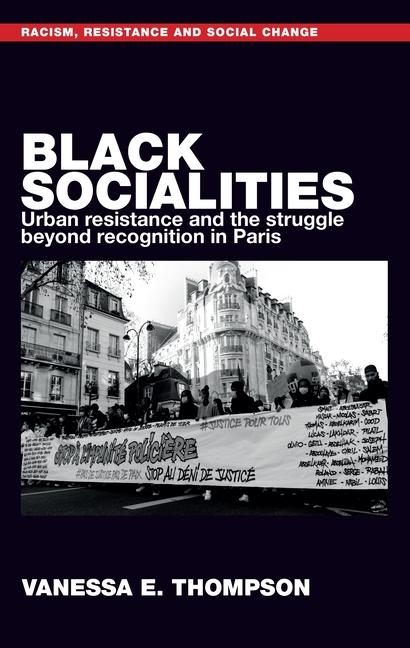
Zustellung: Mo, 30.03. - Do, 02.04.26
Noch nicht erschienen
VersandkostenfreiBestellen & in Filiale abholen:
How do black urban movements resist state racism in Paris beyond calls for recognition or collective identity formation? What role does place-making play in urban black struggles against policing and housing inequalities? What kind of anti-racism and black politics hold the possibilities for radical solidarity? < p/> In Black socialities: Urban resistance and the struggle beyond recognition in Paris, Vanessa E. Thompson shows how black urban movements from the racialized working-class and working-poor districts of Paris develop collective place-making strategies in their anti-racist political mobilizations. These places shape and inform practices of black solidarity as well as multi-racial alliances against state racism, policing, and organized abandonment. < p/> Drawing on ethnographic fieldwork in the Parisian region, in-depth qualitative interviews and analyses of political and media discourses, Thompson explores how urban black-led movements disrupt racist and carceral geographies by claiming and appropriating public and semi-public spaces, protesting in front of racist imagery in the city, creating and supporting self-made infrastructures of expelled black families, and organizing multi-racial resistance against policing. Bringing a spatial perspective to the study of blackness and anti-racism in France, and Europe writ large, Thompson provides a nuanced understanding of black urban politics in France, its relation to local and transnational spaces, and how they forge multi-racial alliances and new formations of political blackness.
Produktdetails
Erscheinungsdatum
17. März 2026
Sprache
englisch
Seitenanzahl
240
Autor/Autorin
Vanessa Eileen Thompson
Verlag/Hersteller
Produktart
gebunden
ISBN
9781526168641
Entdecken Sie mehr
Bewertungen
0 Bewertungen
Es wurden noch keine Bewertungen abgegeben. Schreiben Sie die erste Bewertung zu "Black Socialities" und helfen Sie damit anderen bei der Kaufentscheidung.









